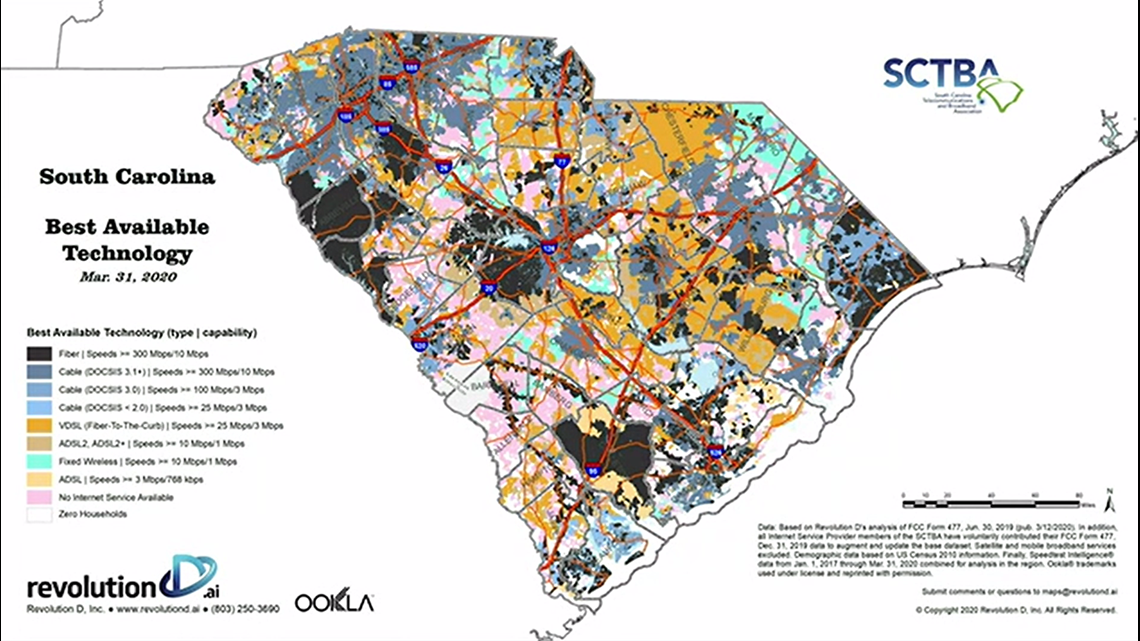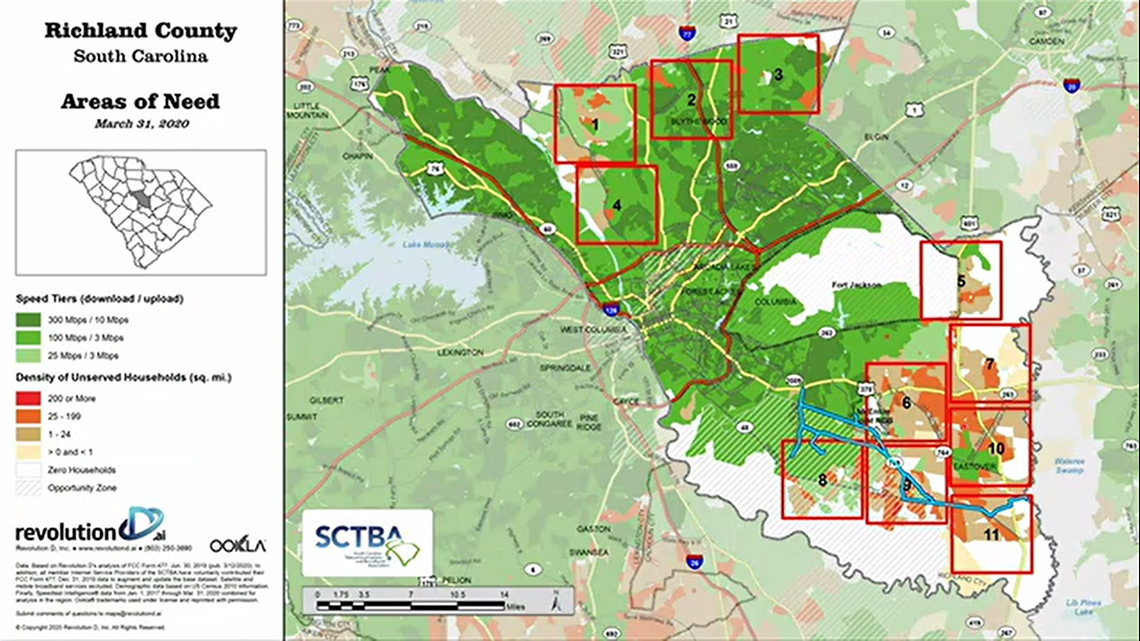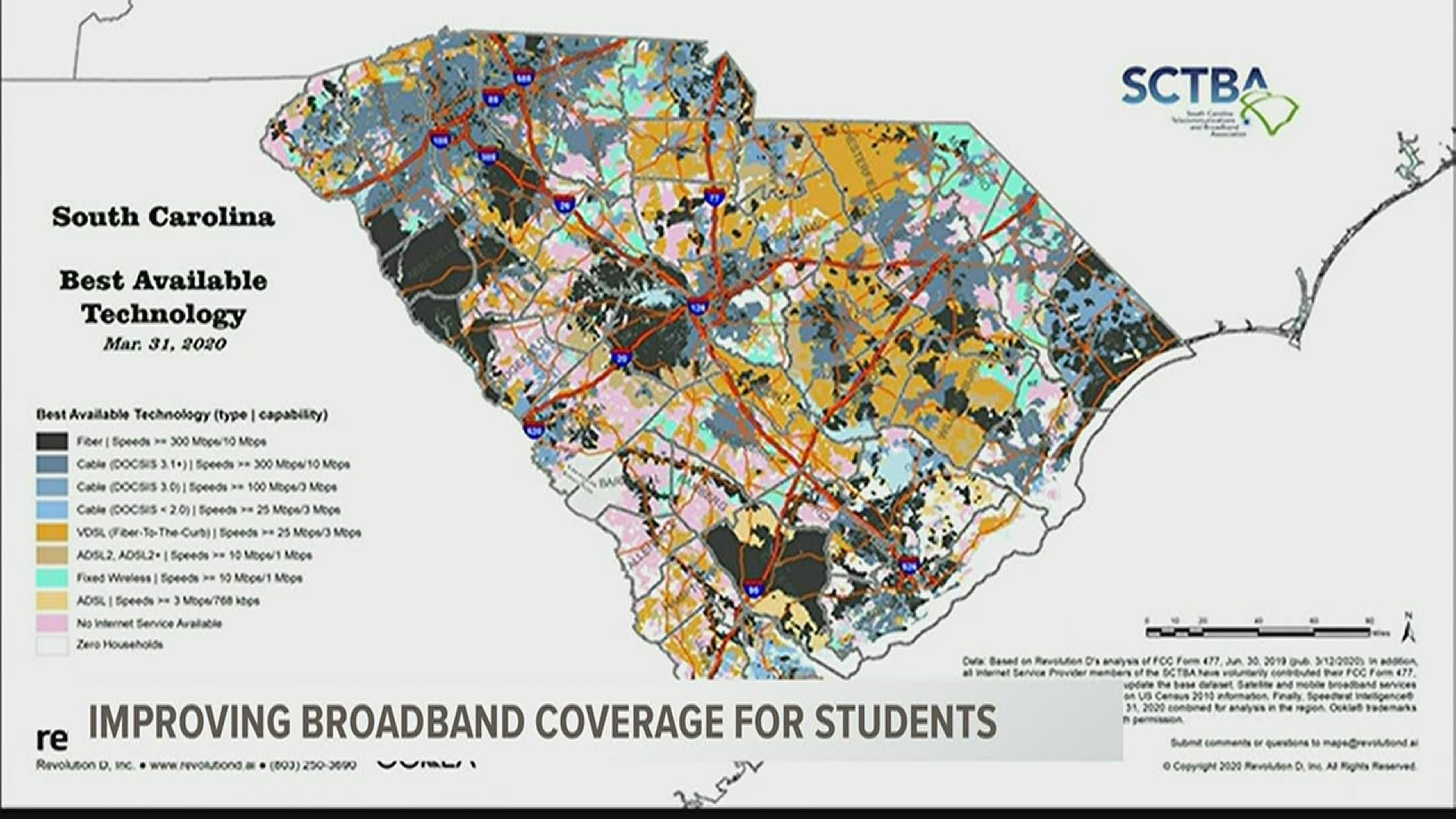COLUMBIA, S.C. — On Wednesday, the COVID-19 Public Education Committee met to discuss how to expand broadband and improve internet access in South Carolina.
“Our children are depending on us to get this right,” Representative Raye Felder said, “They need to have a backup plan for face to face instruction and so much of that is internet dependent.”
Access to internet is a long-term issue in South Carolina. Distance learning has become a necessity with COVID-19, but many families don’t have internet access to learn from home.


Jim Stritzinger, President of Revolution D, explained the map shown above.
“The pink areas are where there is no internet service provider available. So, that means our residents pick up the phone and when they ask for service in their house, there’s nobody on the other end.”
That’s why the COVID-19 Public Education Committee is working with experts on expanding broadband reach and finding solutions.
Stritzinger created maps of South Carolina counties to show where people need broadband.


“Because of this exact map (pictured above), they voted to approve the installation of conduit – for putting fiber optic in lower Richland County,” he said.
Stritzinger says they can give all South Carolinians broadband coverage, but it will take five years.
A short-term solution for e-learning during COVID-19 could possibly be giving students a MiFi device, which is a personal hot spot.
Nanette Edwards, Executive Director of the Office of Regulatory Staff, says the issue for families is not only broadband coverage, but also paying for internet service.
“We talk about availability, but I really think we’re going to dig deep in here and we’re going to find affordability is an issue.”
Another possible solution for e-learning is something called datacasting. Anthony Padgett, President of South Carolina Education Television (SCETV), explained.
“Datacasting in its simplest definition, is a technology that converts a portion of the ETV broadcast signal into an IP data stream which can deliver a one-way transmission of targeted standard aligned curriculum content instead of a television channel.”
Padgett says they can use datacasting as an immediate solution to bring content to students at home without internet. “It is building a bridge between the content and the students.”
The committee will meet again on July 22 to discuss an action plan to help students in need of internet access.

